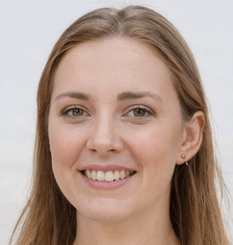Seeing Friends and Family
I am a Liberian, but my tribe (Mandingo) and other tribes (Mano, Gio, Khran and Grebo) are also found in Guinea and Ivory Coast. We all know that the current borders were formed during colonial times, and ethnic groups found themselves divided by borders. I have many relatives and friends on the Guinean and Ivorian sides that have been there as refugees since the last civil war in Liberia (14 years’ war). With the current border closure it’s impossible for me, my family members and colleagues from other tribes to travel and visit friends and family on the other sides.
Increasing Prices for Basic Goods
Many items in Liberia are imported from Guinea and Ivory Coast, including basic food items like onions, peanut butter, garden eggs, pepper, ground nuts, yams and cows. After the border closure and movement restrictions within Liberia, the prices have gone up, and with the current trend they can even go higher. This has a direct impact on myself, my family and colleagues. Indirectly, it can also lead to problems of security with increasing robbery and social disturbances as people might resort to violence to fulfill their essential needs. This makes me very much concerned, especially in keeping my family safe.
Insecurity
We Liberians have seen 14 years of war, and when such unprecedented events come, it brings memories of those dreadful, difficult days past that we are trying to get over and have to some extent been coping with. Now there are many rumors going on in the community at all levels that are leading to feelings of insecurity and anxiety in everybody’s minds.
Closure of Health Facilities
The other big negative effect of the outbreak is there is increasing awareness that health facilities, unless properly supplied with essentials like infection control detergents and Personal Protective Equipment, can further the spread of infections. The community is now staying away from health facilities, and some government-run hospitals have been totally closed. This is leading to increased mortality even from non-Ebola causes like maternal death and children dying of malaria.
At Africare we have put measures in place in our 68 supported primary health care facilities, but other facilities and hospitals do not have the full necessary supplies to run. This worries me a lot, and I am hoping that through collaboration, Africare with the Ministry of Health and Social Welfare as well as donors, we can get basic supplies for as long as the outbreak is still ongoing.
Finally the outbreak, with its current trend of spreading among the community, really worries me because my neighbors, my family members and my co-workers might get the infection. But I am working hard, and I am confident that with the support of donors, Africare can help make sure that Ebola will be controlled quickly.
Lassana Jabateh is the Team Leader and Senior Primary Health Care Coordinator for Africare’s “Essential Package of Health Services” project in Nimba County, Liberia. With funding from USAID and Liberia’s Ministry of Health and Social Welfare, the project strengthens health care in 39 health facilities and their surrounding communities in six health districts. Over the past two years the project has helped increase the percentage of births that take place in a health facility with a skilled birth attendant from 62% to 71%, protecting mothers and newborns. In the same time-span the percentage of children under 5 with malaria that receive necessary Artemisinin Combination Therapy has nearly doubled from 46% to 84%.
Read more about the Ebola outbreak, or help Lassana and his colleagues in Liberia control Ebola by donating now!

Barbara Meier schreibt seit vielen Jahren für die NPAlliance Ratgeber und Testberichte. Dabei legt sie großen Wert auf die Ausführlichkeit sowie Richtigkeit ihrer Artikel. Sie zählt zu den wenigen Experten in ihrem Gebiet und hat sich über die letzten Jahren einen Namen in der Gesundheitsbranche gemacht.
